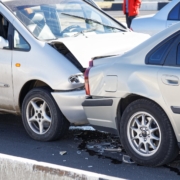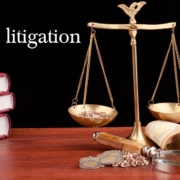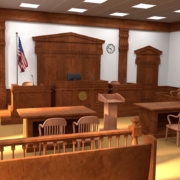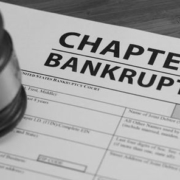Car Accidents in Franklin, KY
Serving as the county seat of Simpson County, Franklin is known for its number of notable people, Kentucky Downs, and dozens of churches found throughout the city. Not to be confused with Franklin County, the city of Franklin has fewer than 10,000 people, and as such, levels of traffic congestion are relatively low, and car accidents–especially serious car accidents–aren’t common.
But car accidents do occur from time to time, and in a single year, there were 599 motor vehicle accidents reported in Simpson County, three of which were fatal, and 117 of which were injury collisions. While Franklin may be a small city, those who are involved in car accidents within Franklin have as much of a right to seek compensation for their harm as do those in other parts of the state and working with an experienced car accident attorney is imperative.
Kentucky No-Fault Car Accident Laws
Kentucky is one of a handful of states in the nation that maintains a no-fault system for car accidents, which means that drivers must turn to their own car insurance company first, regardless of fault. To be sure, all drivers are required to carry Personal Injury Protection (PIP) coverage to pay for medical expenses resulting from an accident.
Because the no-fault system allows for a driver to recover compensation from their own insurance company after a crash, even if they themselves were to blame for the incident, drivers are simultaneously barred from filing a lawsuit against the other driver or filing a claim for compensation with the other driver’s insurance.
The no-fault law has some exceptions, though; drivers may step outside of the no-fault system and seek compensation from a negligent party who caused the crash and related injuries when:
- Medical expenses total at least $1,000; or
- An injury is severe enough to result in permanent injury, disfigurement, bone fracture, or death.
Because drivers may seek damages against the other party when their injuries or injury-related expenses meet the threshold described above, drivers are also required to carry liability insurance in the amounts of $25,000 in bodily injury liability coverage per person, $50,000 in bodily injury liability coverage per accident, and $10,000 in property damage liability coverage per accident.
Maximizing Your Compensation Award in a Crash
If you have been involved in a car accident and suffered property damage, bodily injury, or both, you surely want to receive the maximum amount of compensation available to you. If you are filing a claim with your own insurance company (PIP coverage), you will need to prove the full extent of damages you have suffered, which is best done by providing proof of medical bills, doctor’s notes and prescribed treatments, and in some cases, expert medical testimony.
If you are filing a claim with the insurance company of the other driver, things may become more complicated as not only will you need to prove the extent of injury, but also prove that your accident would not have occurred but for the actions of the other driver.
How a Car Accident Attorney in Franklin, Kentucky Can Help You
Many people involved in a car accident hesitate to hire a car accident lawyer following a crash, afraid that hiring a lawyer will only complicate things, and worried about their ability to afford a lawyer. While a lawyer may not be necessary for all car accident claims, here’s how a skilled attorney can help you:
Open an investigation into your car accident case.
If you have to prove fault of the other driver in order to recover the compensation that you deserve, having an attorney on your side who knows how to conduct an investigation into your case, and is willing to dig deep to get the facts, is critical. A skilled attorney will not only dedicate the time necessary to thoroughly investigating your case, but also the resources; investigations often require hiring medical experts, accident reconstruction experts, design specialists, and other professionals.
- Organize all data and documents related to your claim. From making sense of witness statements and police reports to compiling and adding together the various expenses that you have incurred directly related to your accident, having a team of professionals who can organize all data and documents related to your claim is important. This information will be used to determine the value of your claim, so it is critical that this process is comprehensive and exact.
- File your claim and help you to understand the law. Filing a car accident claim or pursuing a lawsuit is a process that requires understanding of applicable laws and rules. Our Franklin car accident lawyer will not only help you to file your claim but will also help you to understand things like negligence, liability, a statute of limitations, subrogation, and more.
- Negotiate your claim and litigate if appropriate. If an insurance adjuster offers you a settlement, your lawyer will review the settlement to ensure that it is fair and just. If it’s not, negotiations will ensue, led by your attorney. If a fair settlement cannot be reached that fully compensates you for your losses, your attorney can file a lawsuit and litigate on your behalf if necessary.
If you don’t think that you can afford a lawyer, consider that our attorney works on a contingency fee basis, which means that you will never have to pay any upfront or hourly fees. In fact, we don’t collect any payment unless you recover a settlement.
Contact a Franklin, Kentucky Car Accident Lawyer Today
Being involved in a car accident, especially a serious one that leads to expensive amounts property damage and injuries, can be a shocking experience. While you may be worried about your recovery and how you will afford things like medical expenses and costs of living while you’re unable to work, you can take comfort in the fact that our attorney is here to fight for you.
Take the first step toward recovering the compensation you deserve by reaching out to a reputable auto accident lawyer in your area.










